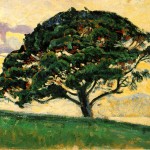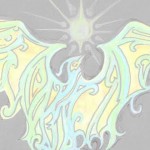Twenty-five years ago this month saw the publication of my book Wicca: The Old Religion in the New Age. Since then, Wicca has been republished with two different subtitles and has been translated into German, Spanish, Dutch, Norwegian, and Italian, with more translations underway. Now, a quarter of a century on, we can reflect on how the spiritual path that is Wicca is evolving.
A ‘third-generation book’
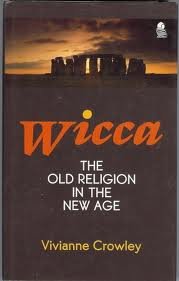 The first generation of books on the religion of witchcraft inspired the contemporary Wicca that so many of us practice today. The writings of Charles Leland, Margaret Murray, and Gerald Gardner reflected a deep-felt longing for the elder Gods. Without these pioneers, Wicca would not exist in its current form.
The first generation of books on the religion of witchcraft inspired the contemporary Wicca that so many of us practice today. The writings of Charles Leland, Margaret Murray, and Gerald Gardner reflected a deep-felt longing for the elder Gods. Without these pioneers, Wicca would not exist in its current form.
In the 1970s and 1980s, second generation authors, such as Doreen Valiente and Stewart and Janet Farrar, developed Wicca’s rituals and practices and gave people the knowledge that enabled them to practice the Craft for themselves.
Beginning in 1979, over the next twenty years many books were written by a third generation that broadened the Craft in new directions. Starhawk’s feminist and earth-centered vision in The Spiral Dance: A Rebirth of the Ancient Religion of the Great Goddess inspired eco-activists and feminist witches. Scott Cunningham’s Wicca: A Guide for the Solitary Practitioner was an inspiration for those who could not or did not want to belong to a group. My book Wicca drew on my background in Jungian psychology to show how initiatory Wicca could be a path of spiritual growth and personal transformation. Phyllis Currot’s Book of Shadows, A Modern Woman’s Journey into the Wisdom of Witchcraft and the Magic of the Goddess inspired thousands of women to find spiritual fulfillment in contemporary witchcraft. Each generation has built on the next, evolving from the contributions of our predecessors on the path.
Wicca and spiritual transformation
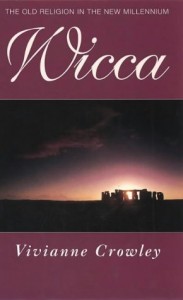 When I wrote Wicca, I had been in Wicca for 15 years. What I had seen in that time was how Wicca had the potential to transform people. Many of the processes that I had seen occurring as people worked their way through the initiatory systems were those that manifest through the inner journey of growth that Carl Gustav Jung called ‘individuation’. By exposing our inner world to the Gods and to those who share the spiritual journey with us, we are transformed. This is not the matter of a few years, but a lifelong process, which initiatory Wicca at its best can nurture, support and foster. The purpose of such a journey is that of the Great Work – the transformation of self as a starting point for the transformation of humankind; for if individuals do not change, then societies cannot evolve. Our aim is to grow nearer the Gods, to move from our egocentric engagement with the world for our own ends, to a re-centering that detaches us from our own preoccupations and allows us the see the world from a wider, deeper, and longer-term perspective.
When I wrote Wicca, I had been in Wicca for 15 years. What I had seen in that time was how Wicca had the potential to transform people. Many of the processes that I had seen occurring as people worked their way through the initiatory systems were those that manifest through the inner journey of growth that Carl Gustav Jung called ‘individuation’. By exposing our inner world to the Gods and to those who share the spiritual journey with us, we are transformed. This is not the matter of a few years, but a lifelong process, which initiatory Wicca at its best can nurture, support and foster. The purpose of such a journey is that of the Great Work – the transformation of self as a starting point for the transformation of humankind; for if individuals do not change, then societies cannot evolve. Our aim is to grow nearer the Gods, to move from our egocentric engagement with the world for our own ends, to a re-centering that detaches us from our own preoccupations and allows us the see the world from a wider, deeper, and longer-term perspective.
Wicca is not perfect
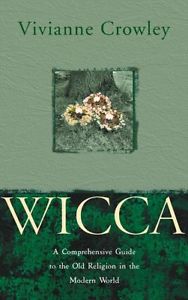 Wicca is practiced by imperfect human beings and we are susceptible to the same failings as any other spiritual tradition. Wicca is, however, different from many. It is practiced by women and men on an equal basis. It has not sought wealth, worldly power, or to create a structure of a paid leadership with followers. It is practiced primarily in people’s homes and backyards, in forest and park. Its core structure is small groups, with all the challenges and demands that small group membership brings. Despite the fragility of its structure and the evolution of forms of Wicca that are broader-based and more open-access, the initiatory tradition as revealed by Gerald Gardner has survived and thrived. Along the way, it has evolved. I often liken Wicca to a vine. In each country where the vine is planted, the wine it produces takes on the flavor of the soil of that land. Nevertheless, in all the countries where it has spread – Britain, America, Canada, The Netherlands, Germany, Scandinavia, Belgium, Italy, Poland, Australia, and many more beyond – initiatory Wicca has remained recognizably the same. The bonds between Wiccans in different countries have deepened over the years. The internet and cheap travel have enlarged and strengthened what was already an international community. At community gatherings in Europe, we hear people greetings the quarters in not only English, but in Dutch, Norwegian, German, Polish, Czech, Irish, Spanish, Italian, Russian … Each year, the language list lengthens.
Wicca is practiced by imperfect human beings and we are susceptible to the same failings as any other spiritual tradition. Wicca is, however, different from many. It is practiced by women and men on an equal basis. It has not sought wealth, worldly power, or to create a structure of a paid leadership with followers. It is practiced primarily in people’s homes and backyards, in forest and park. Its core structure is small groups, with all the challenges and demands that small group membership brings. Despite the fragility of its structure and the evolution of forms of Wicca that are broader-based and more open-access, the initiatory tradition as revealed by Gerald Gardner has survived and thrived. Along the way, it has evolved. I often liken Wicca to a vine. In each country where the vine is planted, the wine it produces takes on the flavor of the soil of that land. Nevertheless, in all the countries where it has spread – Britain, America, Canada, The Netherlands, Germany, Scandinavia, Belgium, Italy, Poland, Australia, and many more beyond – initiatory Wicca has remained recognizably the same. The bonds between Wiccans in different countries have deepened over the years. The internet and cheap travel have enlarged and strengthened what was already an international community. At community gatherings in Europe, we hear people greetings the quarters in not only English, but in Dutch, Norwegian, German, Polish, Czech, Irish, Spanish, Italian, Russian … Each year, the language list lengthens.
Will Wicca survive and grow?
Is Wicca the last flowering of the Age of Pisces, a romantic longing for a vanishing mystical past? Or is it a natural religion for a post-modern age; one in which the feminine, individuality, difference, personal autonomy and authority, acceptance of the body and its needs, and a willingness to accept different interpretations of the Divine sit comfortably side by side?
This is what I wrote at the end of Wicca and still find it true today:
Deep in the recesses of the human psyche, Our Lord the Horned One waited through the centuries until his time should come again. Then he took down from the oak in the centre of the forest his hunting horn not blown for many a thousand year, and sounded three times upon it. He awoke the Goddess from her dreaming sleep and she spoke in a voice like a silver harp whisper ‘The Charge of Arianrhod’ and said:
I am Arianrhod of the spiral castle by the silver sea.
I am the last of my race,
without beginning and without ending;
for before ever time and change began,
my mother the Star Goddess lay upon the Lord of Darkness
and brought me forth.I am beyond sound and sight,
I cannot be touched,
I am She who dwells behind the veil of matter.
They ask if I exist,
and I answer that I do, and I do not;
but at the end of cycles and seasons,
which some name Death,
but those who have lifted my veil name Life,
on the shores of the Sea of Time you will find me,
my head turned to the wind,
walking by the waves of the eons and waiting,
for your coming and your going.In truth I was, I am and I will be,
when all else has faded from your memory.
I am something which you possess,
and something which you seek,
I am the question that is also the answer;
I am that which binds and that which sets free;
I am the beginning of things; I am the ending;
seek me and know me, for I am She.The Goddess and the Horned God have risen from their sleep and call their worshippers, from East and South, and West and North, whispering in the dreams of those who love them: “Seek us, find us, know us; walk the way which lies between the worlds.”
Wicca is available from esoteric book stores and online retailers:
USA: Wicca: A comprehensive guide to the Old Religion in the Modern World
UK: Wicca: A comprehensive guide to the Old Religion in the Modern World
Italy: I poteri della Wicca. La più antica religione del mondo nella società contemporanea
For other countries and languages, check your local bookstore.
Read this article in French, Italian, Polish, Spanish, or Russian!

